Pre and Post Operation Care
Caring for your pet before and after their surgery will ensure they have a successful surgery and keep their discomfort low.
Pre-Surgical Care
All spay/neuters are by appointment only. To get scheduled, book online or call us at 423-531-SPAY.
In the Morning
On the morning of surgery, do not feed your pet breakfast (take up food by midnight the night before surgery). It is fine to allow your pet water until the time you leave the house.
Arrival
Dogs must arrive at ChattaNeuter at 7:30 am and cats at 8:00 am. Check-in generally takes 20-30 minutes.
It is important to minimize your pet’s stress on the morning of surgery since your pet will be undergoing anesthesia. We ask that you leave your dog in the car while you sign in at the table out front. Then you may return to your car and wait for our phone call to check you in. All dogs must be on a leash.
Cats may be brought in starting at 8:00 am. Again, this guideline is to minimize stress so that when cats come into the building, most or all dogs are no longer in the lobby. Cats must be brought in a carrier; a hard plastic pet taxi-type carrier is preferred. We have cardboard carriers available for $7 that can be purchased ahead of your appointment if needed.
Vaccinations and Illnesses
We recommend that pets are up to date on vaccinations before visiting ChattaNeuter. It may take up to two weeks for vaccinations to protect your pet. If your pet is sick, injured, or currently on any medications, or has been so within the past 30 days, please call us ahead of your appointment to discuss when surgery can be performed.
Pre-Surgical Exam
All pets will receive a pre-surgical examination on the morning of surgery. Proceeding with surgery will be dependent on this exam. Undergoing surgery and anesthesia presents a higher risk for some animals including: overweight and underweight animals, pets 7 and older, and some breeds. For these and other high-risk patients, a high-risk waiver may be required; in some cases surgery will not be performed.
Medication
All pets who undergo spay/neuter at ChattaNeuter will receive injectable pain medication at the time of surgery. Take home pain medication is available for $5 for cats or $10 for dogs. Elizabethan collars are highly recommended to prevent your pet from licking incision site and are available for $10-$15.
Elizabethan collars prevent pets from licking the incision site.
Pick Up
All dogs must be picked up at 3:30pm and cats must be picked up at 4:00pm. Fees will apply if pets are not picked up on time.
When you pick up your pet, you will receive post-operative instructions about how to care for your pet after surgery. When picking up a cat, we recommend that you bring a towel or blanket to place over your cat's carrier for the car ride home.
Post-Operative Care
If there are any questions or concerns directly related to the surgery during the recovery period, please call our office at 423-531-SPAY (7729) Monday-Friday 7:30am- 12:00pm and 1:30 pm- 4:30 pm.
Emergencies
For emergencies after office hours, there are several veterinary emergency clinics in Chattanooga:
Animal Emergency & Specialty Center - (423) 822-8304
Regional Institute for Veterinary Emergencies (RIVER) - (423) 698-4612
Veterinary Care & Specialty Group (VCSG) - (423) 591-0270
The First 24 Hours
Give pets time to recover from surgery and anesthesia. On the night of the surgery, cats should be kept inside and separated in their carriers or in a confined, dark space to allow a full recovery. Your pet’s appetite should return within 24 hours; you may offer them regular dog/cat food tonight.
Recovery
The recovery period is the next 10 days. During this time:
We strongly recommend that all pets wear e-collars after surgery to avoid post-surgical complications. Do not allow your pet to lick or chew at the incision. If this occurs, an e-collar must be applied to prevent licking/chewing which can cause infection or the incision to open.
Keep your pets quiet and indoors where they can stay clean, dry, and warm. No baths during the recovery period. Your pet should avoid running, jumping, playing, swimming, or other strenuous activity. Dogs must be walked on a leash when outside.
Do not change your pet’s diet. Do not give table scraps, milk, or any other people food during the recovery period. Feeding them their regular diet will help avoid stomach upset.
Check the incision twice daily during the recovery period:
Females should have no drainage. If she was in heat before spay she should be kept away from males for 3 weeks.
Male dogs’ incisions may have some space left unsutured to allow for drainage and prevent swelling; he may have small amount of drainage/discharge for up to 3 days.
Sutures are absorbable, so you will not need to have them removed.
Pet received a small green tattoo next to incision to indicate spay/neuter.
We recommend that your pet receive an examination with a full-service veterinarian 7 to 10 days after surgery to have the incision checked for complete healing, to discuss any ongoing care, and to discuss a booster vaccination if your pet received a vaccine at our clinic other than rabies.
Complications
Lack of appetite or lethargy lasting for more than 24 hours, excessive or prolonged diarrhea or vomiting are not normal and the pet should be rechecked by ChattaNeuter when possible or taken to a full-service veterinarian.
We will make every reasonable effort to treat at our clinic, at minimal cost, any post-operative complications resulting directly from the surgery, if an e-collar has been worn and the above post-op instructions are followed in full.
Please call for an appointment as soon as you see cause for concern. Your regular veterinarian must address illnesses or injuries that are not a direct result of surgery or that are beyond the scope of normal post-operative care.



